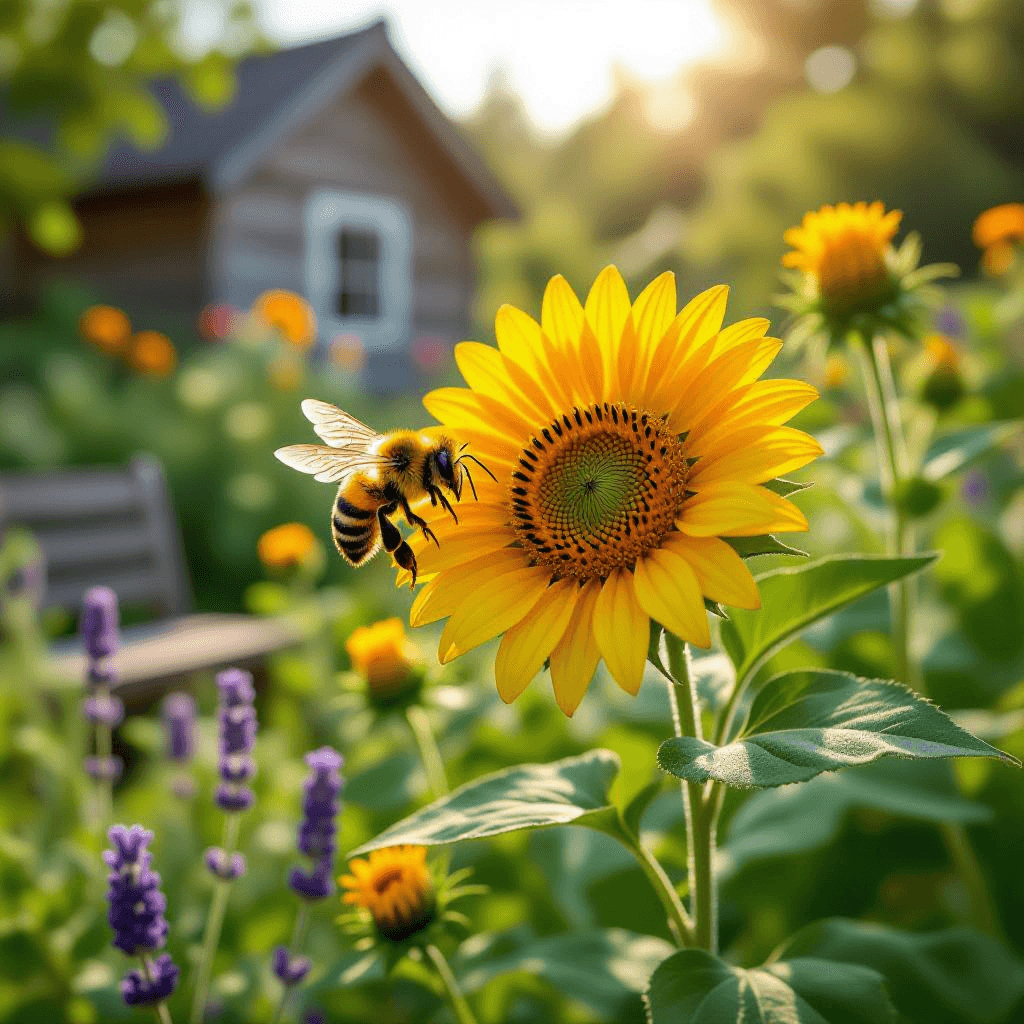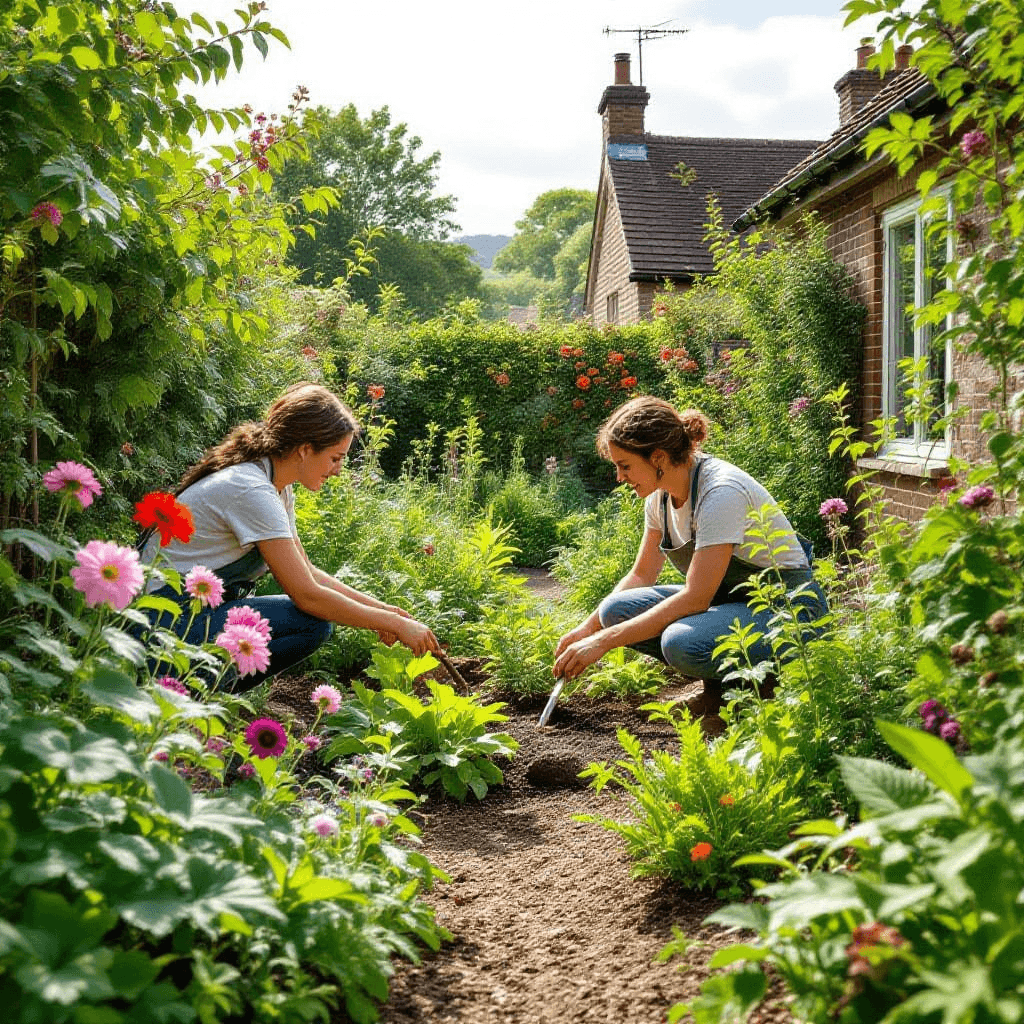Understanding Organic Gardening
Organic gardening is rooted in the principles of sustainability, biodiversity, and ecological balance, diverging significantly from conventional gardening methods that rely heavily on synthetic chemicals. At its core, organic gardening emphasizes the use of natural processes, encouraging healthy soil, ecosystem diversity, and environmentally-friendly practices. This approach is not only about limiting the use of chemical fertilizers and pesticides but also about fostering a wholesome environment that supports the growth of plants in harmony with nature.
In an organic garden, techniques such as crop rotation, companion planting, and the use of compost and natural fertilizers are employed to promote plant health. These practices aim to improve soil structure, enhance fertility, and manage pests without harming beneficial organisms. For example, instead of using chemical pesticides, organic gardeners often rely on natural predators, like ladybugs, to control aphid populations. This not only protects the plants but also supports a more balanced ecosystem.
The historical context of organic gardening in the UK dates back to the early 20th century, gaining prominence through the work of pioneers like Sir Albert Howard and Lady Eve Balfour. Their efforts in promoting organic methods laid the foundation for the organic movement, which has seen significant growth over the decades. Today, organic gardening has gained widespread popularity, influenced by heightened awareness of health, environmental concerns, and the desire for sustainable practices. Consumers are increasingly inclined toward organic products, leading to a flourishing market that supports traditional methods of cultivation without the interference of synthetic inputs.
As society progresses towards sustainability, understanding organic gardening becomes essential for both individual practitioners and the broader environmental movement. By embracing these natural methodologies, gardeners contribute to a healthier ecosystem while enjoying the many benefits associated with growing their own food without harmful chemicals.
Environmental Benefits of Going Organic
Organic gardening presents numerous environmental benefits that significantly contribute to the health of both local ecosystems and the planet. One of the primary advantages is the promotion of biodiversity. By employing organic practices, gardeners create habitats that support a diverse array of plant and animal life. This includes beneficial insects, pollinators, and other wildlife that thrive in chemical-free environments. A rich biodiversity contributes to resilient ecosystems, which are better equipped to withstand the impacts of climate change and other environmental stresses.
Furthermore, organic methods enhance soil health through the use of natural composts and organic matter that improve soil structure, nutrient availability, and microbial activity. Healthy soil is essential for sequestering carbon, thus playing a crucial role in combating climate change. Studies have shown that organic practices lead to higher levels of organic matter in the soil, which helps to anchor carbon dioxide from the atmosphere, mitigating its greenhouse gas effects.
Another significant aspect of organic gardening is the reduction of pollution. Unlike conventional gardening, which often relies on synthetic fertilizers and pesticides, organic practices minimize harmful substances that can seep into water systems and adversely affect both terrestrial and aquatic life. For example, the use of chemical runoff from agricultural practices has been linked to the degradation of local water quality and the decline of fish habitats. Adopting organic gardening methods prevents these substances from entering ecosystems, thereby safeguarding the health of wildlife and preserving aquatic environments.
Collectively, these environmental benefits highlight the importance of transitioning to organic gardening. By prioritizing natural methods, gardeners not only improve their own green spaces but also contribute to a more sustainable and healthier planet for future generations.
Health Advantages for Gardeners and Consumers
Organic gardening presents numerous health advantages for both gardeners and consumers, primarily through the minimization of exposure to harmful pesticides and chemicals. Traditional farming methods often utilize synthetic pesticides and fertilizers that can leave harmful residues on crops, which may accumulate in the bodies of those consuming them. In contrast, organic gardening relies on natural methods for pest control and fertilization, ensuring that both the soil and the food remain free from toxic substances.
Research indicates that individuals involved in organic gardening benefit from reduced exposure to potentially harmful chemicals. These gardeners often report fewer health issues, as they engage with their plants without the risk of interacting with synthetic chemicals that may cause skin irritations or respiratory problems. Additionally, the produce harvested from organic gardens generally contains lower levels of pesticide residues, contributing to a healthier diet and lifestyle.
Nutritionally, organic crops often boast higher levels of essential vitamins and minerals. Studies have shown that organic fruits and vegetables may contain more antioxidants, polyphenols, and micronutrients compared to conventionally grown variants. This higher nutrient density can lead to better overall health, positively impacting immune function and promoting disease resistance. Moreover, the absence of harmful chemicals allows consumers, particularly children and vulnerable populations, to enjoy organic produce safely.
Expert opinions consistently underline the importance of selecting organic produce. Nutritionists emphasize that choosing organic foods can lead to a healthier dietary pattern, as these products encourage a higher intake of fruits and vegetables. Testimonials from avid organic gardeners reflect similar sentiments, with many expressing satisfaction in not only growing their food, but also reaping the health benefits associated with organic practices. The shift towards organic gardening, therefore, not only fosters healthier individuals but also contributes to a more sustainable and ecologically friendly food system.
Practical Tips for Starting Your Organic Garden
Embarking on your organic gardening journey can be both rewarding and fulfilling. The first step to establishing your organic garden is to prepare the soil adequately. Healthy soil is the foundation of a successful garden, as it provides essential nutrients and a robust structure for root development. Start by testing your soil to determine its pH and nutrient levels. This can guide you in amending the soil with organic matter such as compost, which enhances fertility and improves drainage. Ensuring your soil is rich in organic matter creates a hospitable environment for beneficial organisms.
Choosing the right plants is crucial for an organic garden. When selecting plants, prioritize native species as they are well-adapted to the local climate and require fewer resources. Additionally, consider companion planting, where certain plants are grown together to enhance growth and deter pests naturally. For instance, marigolds can repel nematodes, while basil can enhance the flavor of tomatoes. Opting for heirloom varieties can also promote biodiversity and contribute to a healthier ecosystem.
Effective pest management is another essential component of organic gardening. Rather than resorting to chemical pesticides, leverage natural alternatives such as introducing beneficial insects like ladybugs, which control aphid populations. Additionally, homemade organic sprays made from garlic or neem oil can deter harmful pests. Regular monitoring of plant health will allow for early intervention and minimizing the impact of any pest-related issues.
Maintaining healthy plant growth without chemicals involves regular practices such as mulching, which helps retain soil moisture and suppress weeds. Furthermore, proper watering techniques should be adopted to ensure that plants receive the right amount of hydration without encouraging mold or disease. To enrich your organic gardening experience, consider joining local workshops or community groups across the UK. These resources can provide valuable knowledge, support, and connections with fellow organic gardening enthusiasts, enhancing your journey towards a sustainable and chemical-free garden.


